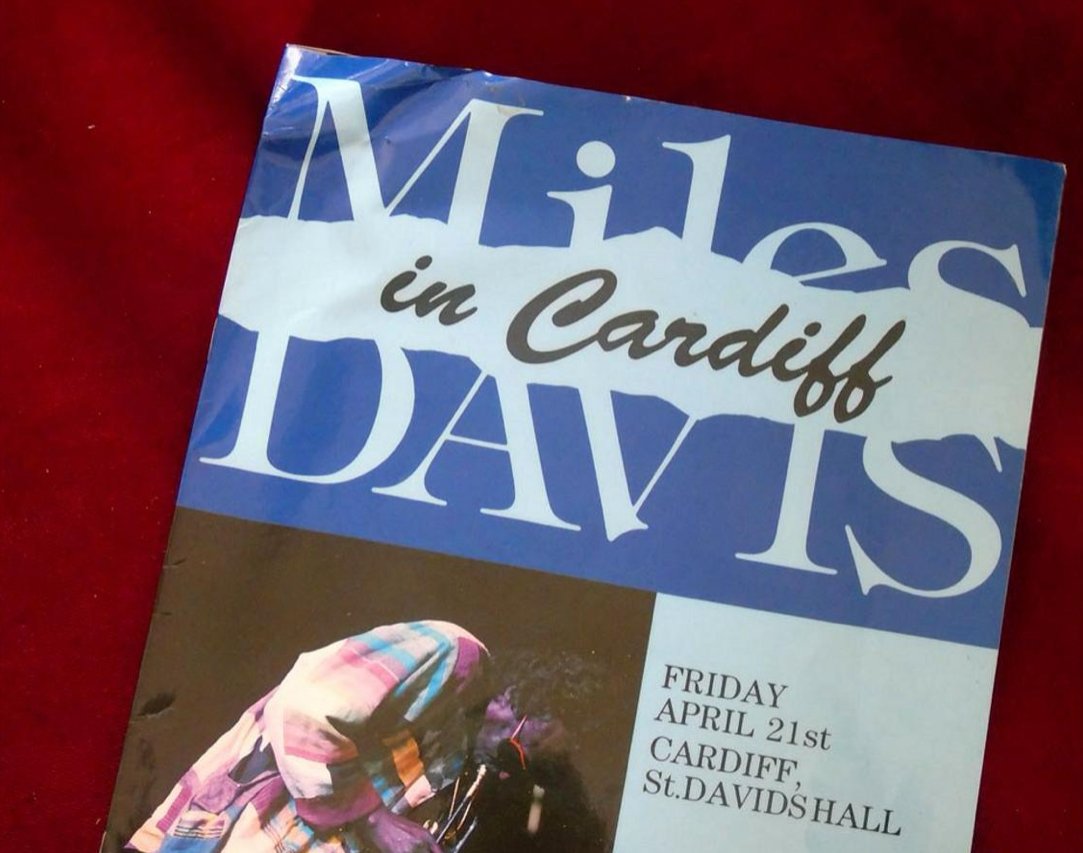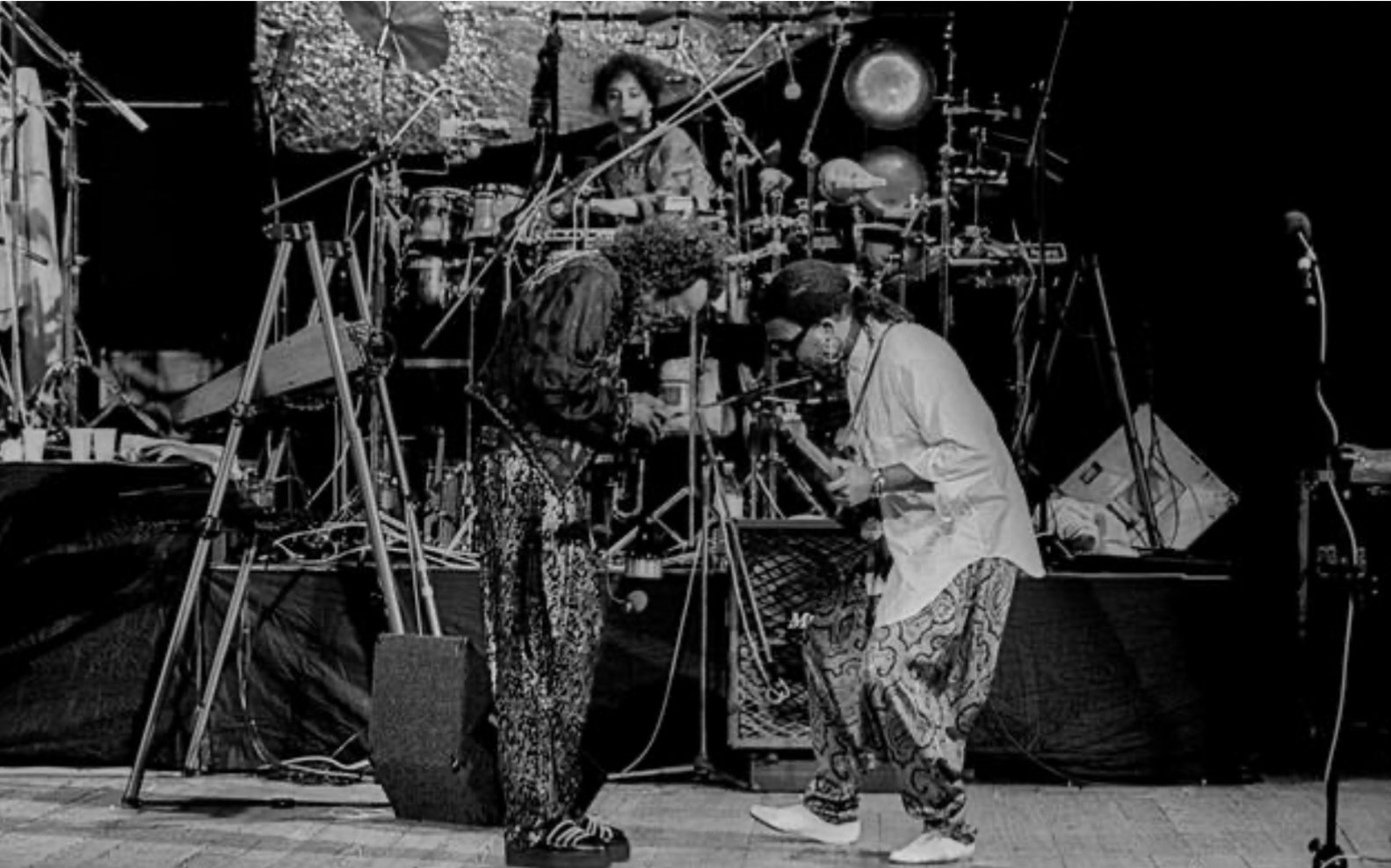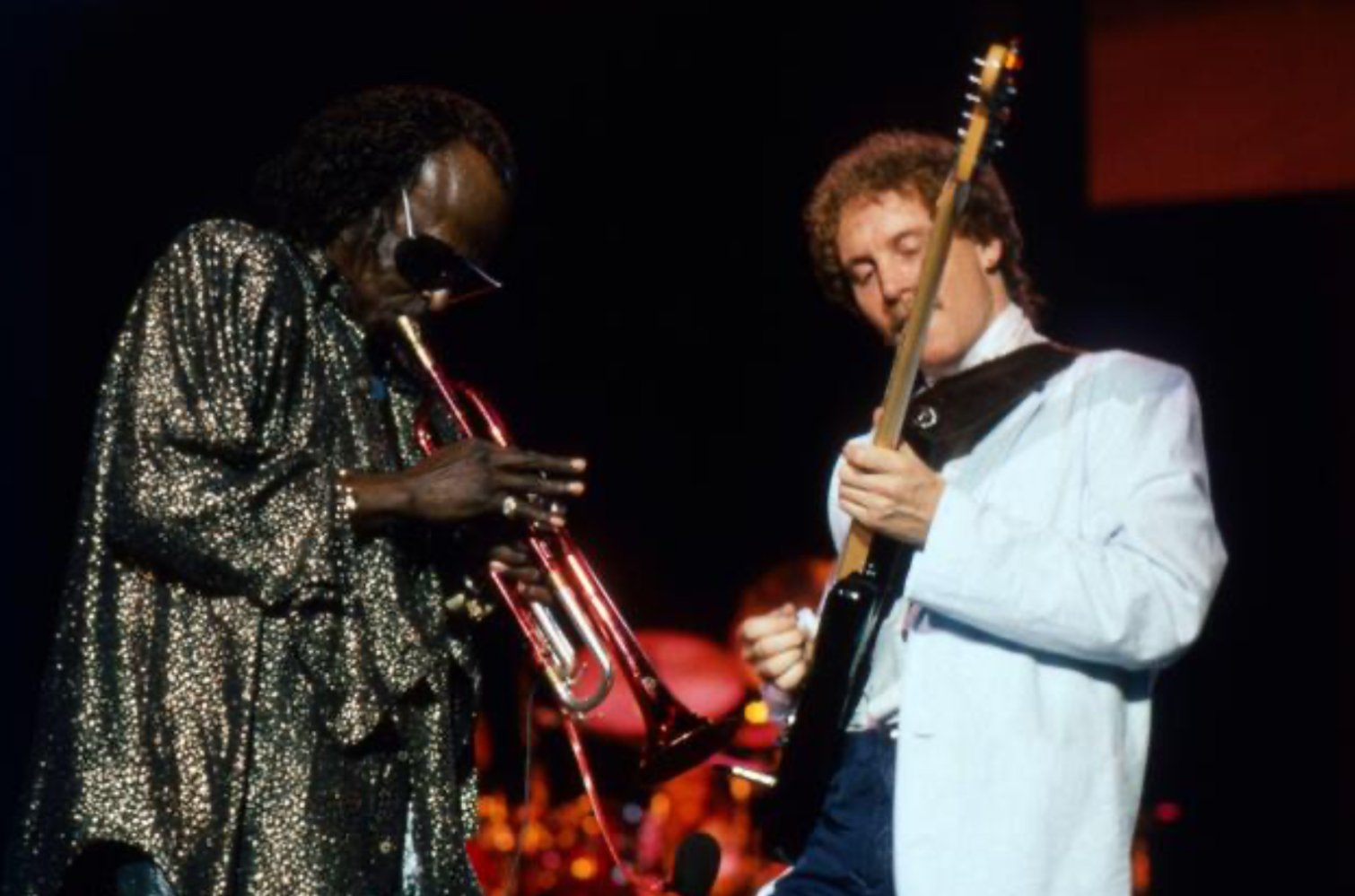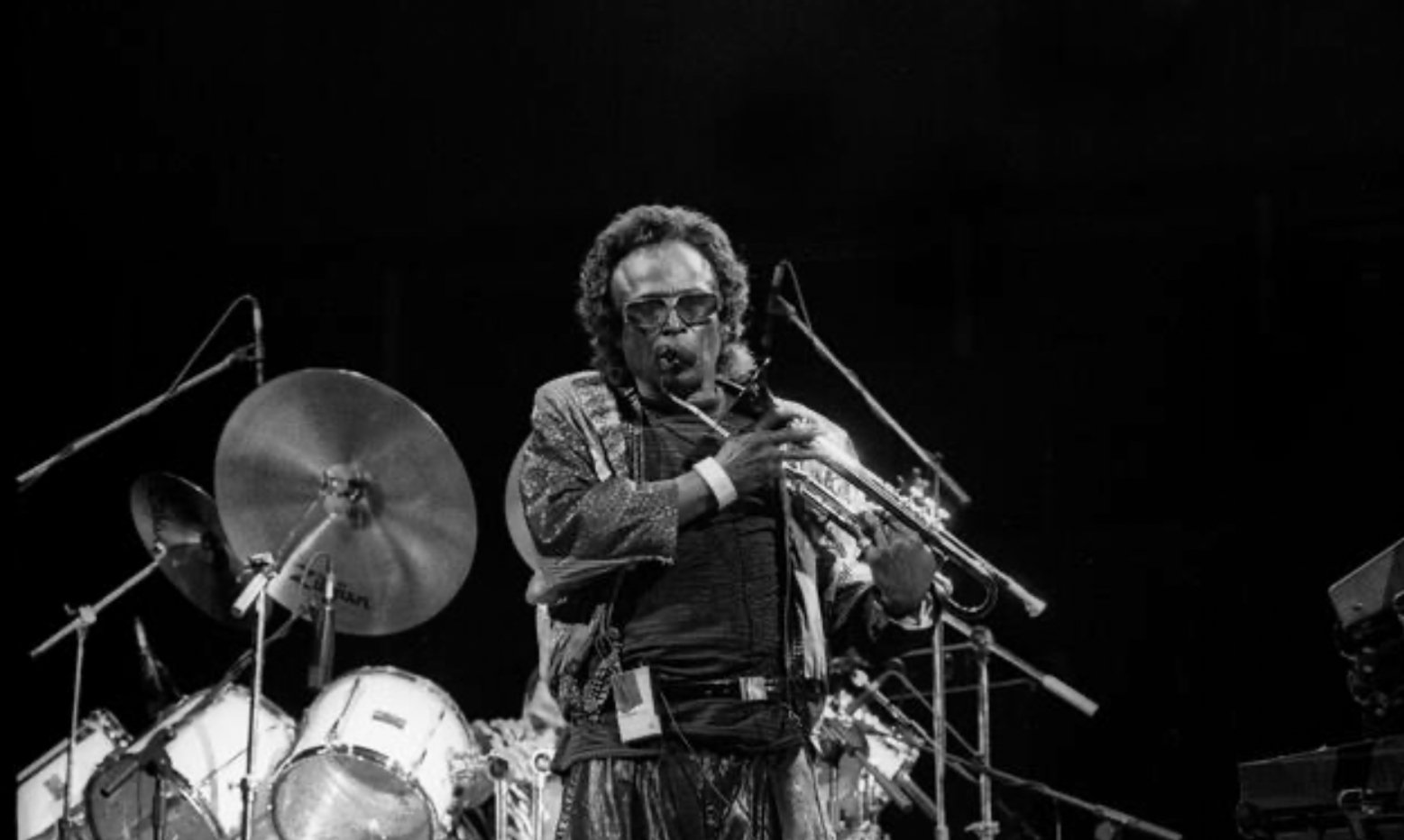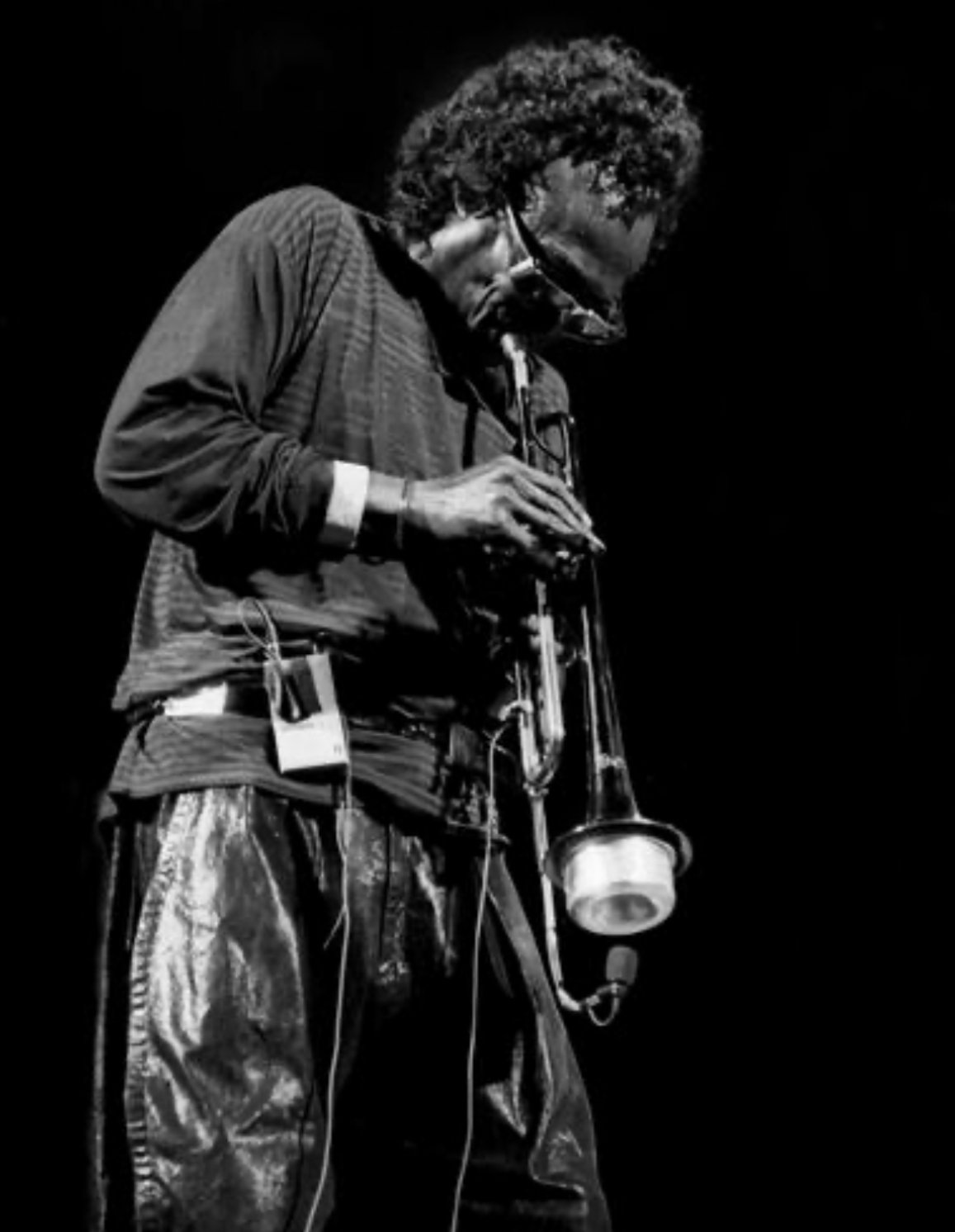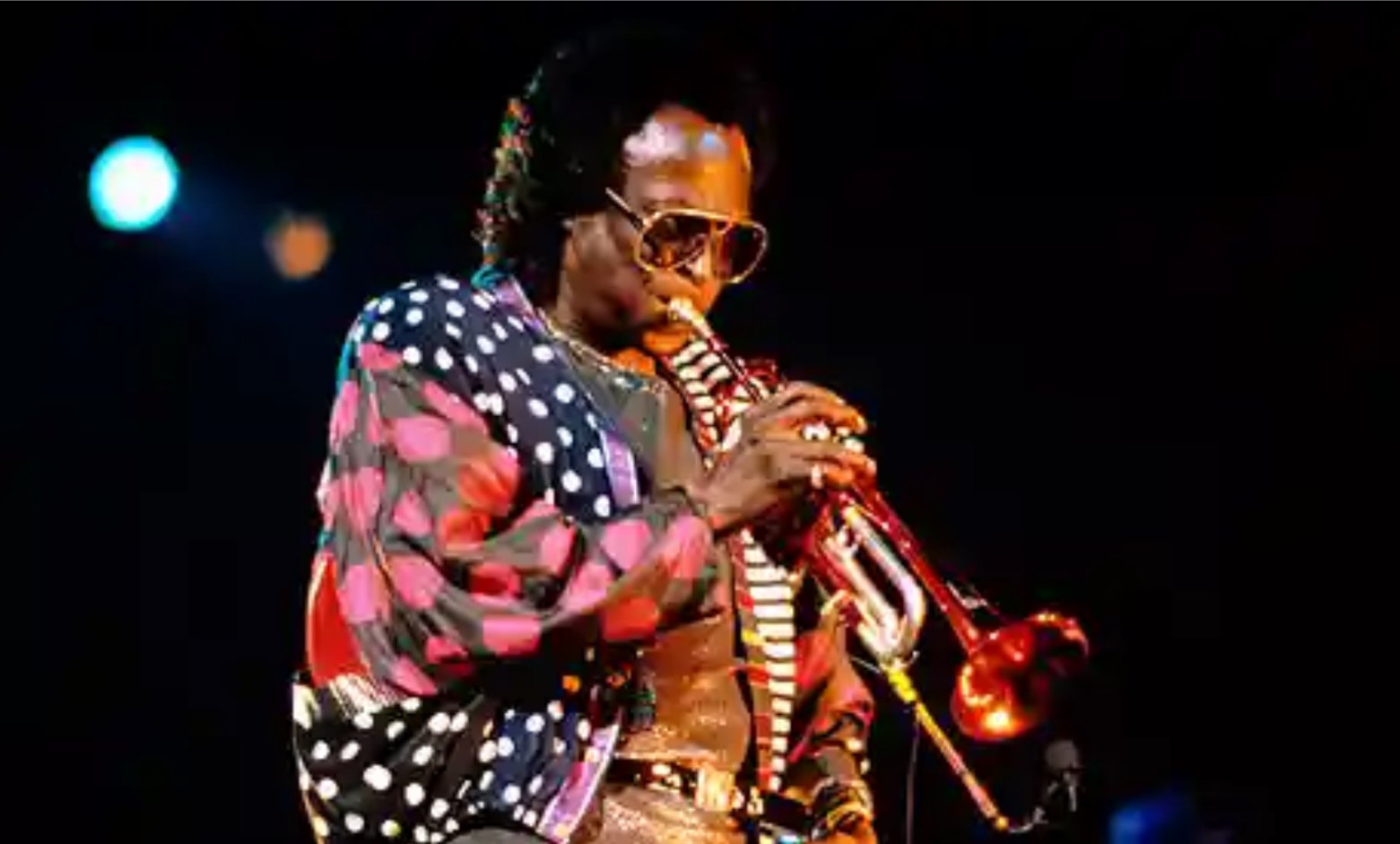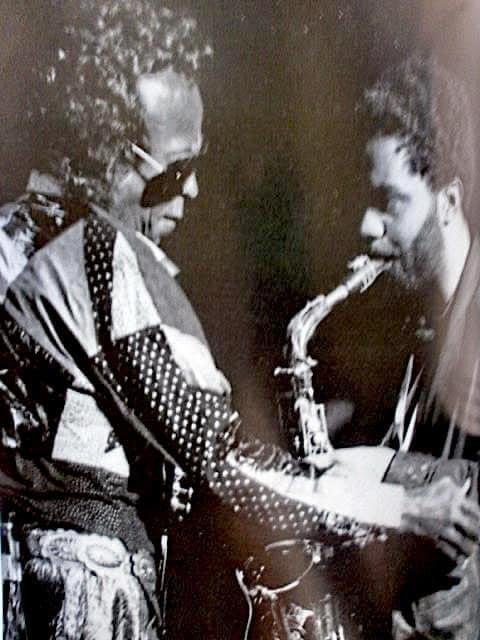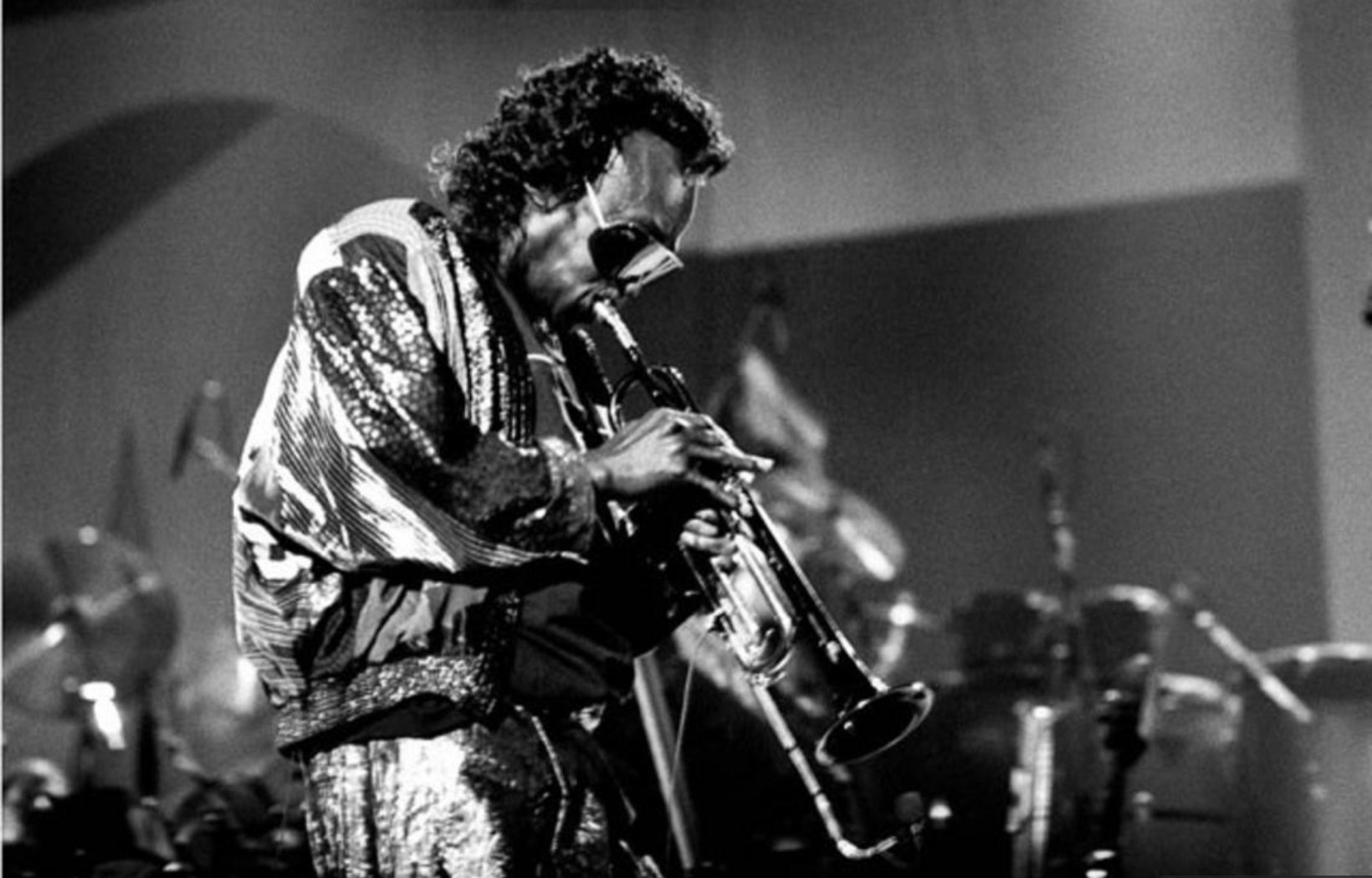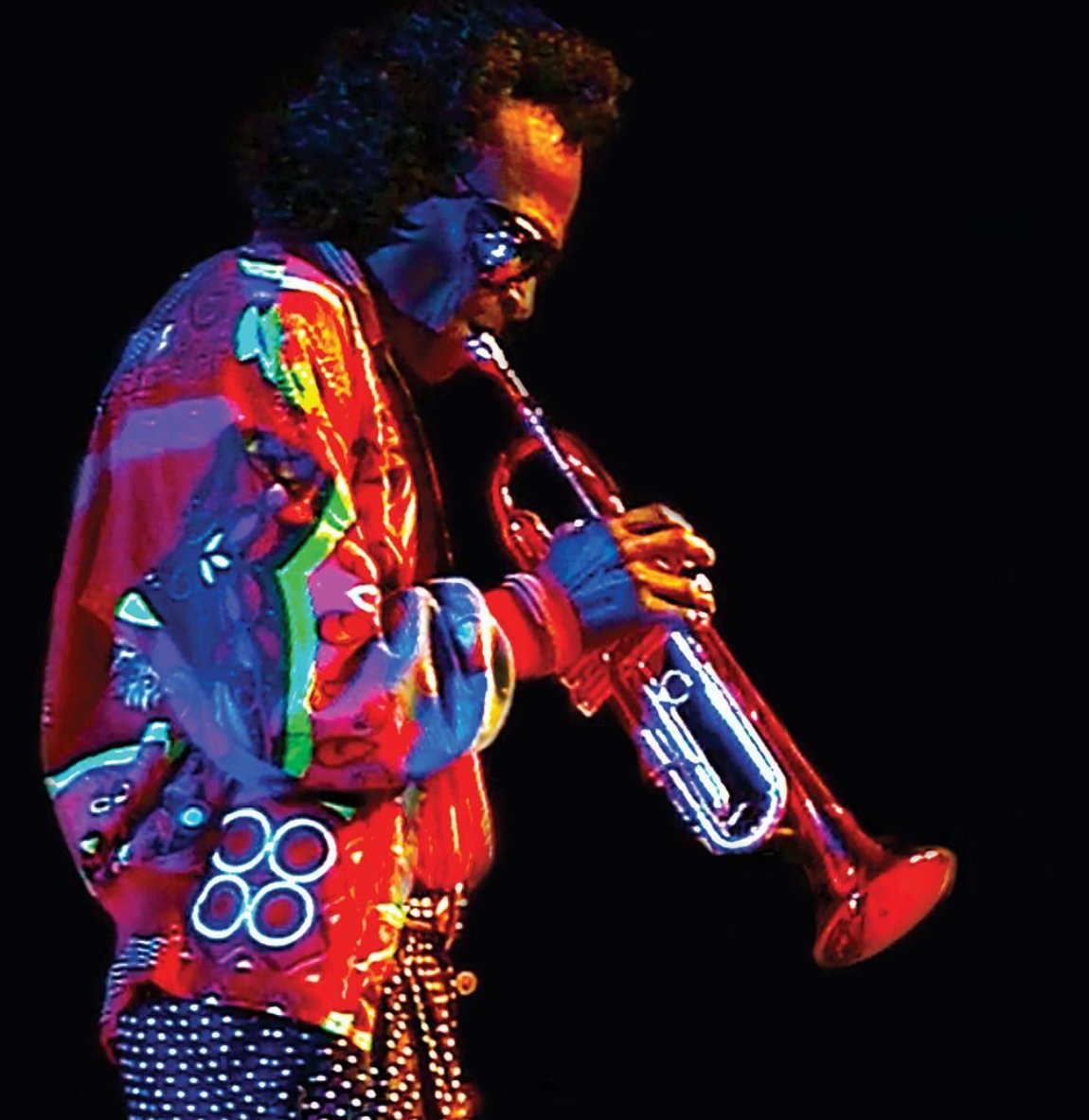Images may be subject to copyright
On this day, 21 April 1989, American jazz trumpeter, bandleader, and composer Miles Davis played Cardiff St David’s Hall.
Miles Davis is considered one of the most innovative, influential, and respected figures in the history of music. The Guardian described him as "a pioneer of 20th-century music, leading many of the key developments in the world of jazz." He has been called "one of the great innovators in jazz", and had the titles Prince of Darkness and the Picasso of Jazz bestowed upon him. The Rolling Stone Encyclopedia of Rock & Roll said, "Miles Davis played a crucial and inevitably controversial role in every major development in jazz since the mid-'40s, and no other jazz musician has had so profound an effect on rock.
Review by Steve Duffy - BBC News - 21 April 2016
It was winter in late 1988 and a fax arrived in my newspaper office in Cardiff. Miles Davis would be playing at St David's Hall.
What, Miles Davis? In Cardiff? Now jazz musicians of any ilk, especially undeniable legends, were not exactly queuing up at the Severn bridge tolls at the best of times.
But in the last two years of his life, he took to the road for a handful of UK shows beyond his near-annual London appearance.
He returned to Manchester Apollo for two nights for the first time since a Free Trade Hall gig in 1960. And then there would be two festival appearances - at Birmingham NEC and for Glasgow in its year as city of culture, a return after 17 years.
The Cardiff show in April 1989 was predictably a sell-out. I had invested a sizeable whack of my junior reporter's disposable salary on a ticket - £15. I didn't dare ask for a review ticket. After all, how do you review Miles Davis? I wanted to enjoy myself.
And then I got into a slight disagreement with the guy who got to do the review who insisted he would be disappointed if Davis didn't play Kind Of Blue, his 1959 epoch-making jazz classic. "But he hasn't played it for 30 years," I said. "That's the point of Miles Davis".
That point was, he did not look back. Unfortunately, Davis's music of the late 1980s - textural funky undertones to sparse melodies, mostly muted trumpet and twists on modern pop standards from the likes of Scritti Politti and Cyndi Lauper - has been overlooked somewhat. Many don't go beyond his critically-lauded, admittedly sublime 1950s and 1960s output.
None of that mattered to the lucky folks of Cardiff and Manchester 27 years ago this week. Now, if you wanted banter with the audience and high fives with the front row, then a Miles Davis concert was not the thing. He was more likely to have his back to the stalls. We should be thankful camera phones had not been invented.
Davis cut quite a small figure and walked off stage after a couple of songs before wandering back on a little while later.
There was an aura though, still some magic and the audience reacted quite wildly before the city of Cardiff, barring rare exceptions, could return to its sleepy default position as far as jazz giants are concerned.
The review, incidentally, was headlined "Off-form Miles is unexciting."
"He has the supreme and essential virtue of pleasing no-one but himself," my colleague wrote. I had to plead journalistic differences.
But what was it like being on stage with him?
Keyboard player John Beasley recalls: "It was my first tour with the band, so I was on cloud nine and I was learning from him like crazy.
"We rehearsed for two weeks in New York before so I'd started to get to know everybody."
He remembers the Cardiff concert.
"My family originally came from Wales so I remember the strange accent! We stayed over, it was a hotel not downtown but in a newer area. My wife was just about to have a baby and I hadn't realised they had Toys R Us in the UK too.
"Miles was on the bus with the rest of us - I was shocked, I thought he'd be flying to gigs or in a limo but he was hanging out with the guys. He could be funny. But it wasn't quite like being with your buddies because he was still Miles Davis."
He had been hired after Davis's nephew Vincent Wilburn, a drummer who had been watching Beasley's band play their weekly club set, suggested he record a cassette.
"He liked what we did and said he'd get a tape to Miles. I decided not to think about it but four months later in Florida my wife said, 'Miles Davis called'. Every musician has a joke about when Miles called but he answered when I called the number back."
Fellow keyboard player on the tour Kei Akagi said: "That was one of my first tours with Miles, and I was very green.
"I was trying very hard to find my place musically within such an incredible band. Miles could at times be a thoroughly intimidating and harsh leader, but he was also a very kind and warm person. He gave me a lot of words of encouragement."
Akagi said his concept of playing jazz piano had been formed by a succession of Davis musicians, from Red Garland to Keith Jarrett.
"To suddenly find myself being in Miles' band and occupying a position of such heavy historical import was very scary at first, and an awesome responsibility. It was humbling, to say the least."
Beasley said Davis would give little notes the next day after concerts.
"He'd call you in individually or the group into his dressing room and say what he liked or what he didn't like."
Akagi said: "He didn't tell me a lot about how to play. He could be rather verbally cryptic. But, what remains with me to this day is when he said 'I don't care what you play as long as you mean it'."
One thing which stuck with Beasley was a lesson on the art of leaving space - and when not to play.
"Early on, Miles came over and grabbed my left hand and put it behind my back. Piano players tend to play a phrase and use the left hand to fill in."
Akagi, still playing with his own trio but also a professor of music at the University of California in Irvine, remembers being part of an almost "tribal" tradition in the band.
"It was a curious tension. I think Miles gave us tremendous latitude to express ourselves, but there were definitely some firm boundaries that defined the 'Miles Davis sound'.
Beasley added: "At times he'd sit at his own keyboard - and play these little riffs, and I'd get to accompany him and he'd look over at me playing from over the top of his sunglasses. Sometimes he'd play something at me on his trumpet."
Setlist
Perfect Way
(Scritti Politti cover)
Star People
The Senate / Me & U
(Foley cover)
Jilli
Tutu
Human Nature
(Michael Jackson cover)
Wrinkle
Mr. Pastorius
Hannibal
Time After Time
(Cyndi Lauper cover)


